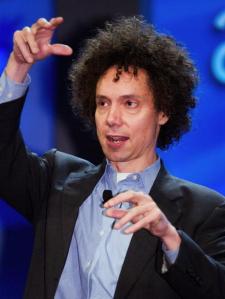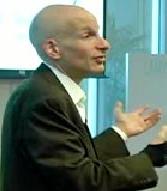In Malcolm Gladwell’s most recent book, Outliers, he uses a metric of 10,000 hours of effort as a measure of time it

takes for someone to master their chosen profession or vocation.
for someone to master their chosen profession or vocation.
This translates from between 5 and 10 years depending on the amount of time spent per year. e.g.
40 hours per week = 2000 hours per year (roughly).
Gladwell gives numerous examples to support his theory, including chess grandmasters, world class athletes, classical musicians, medical specialists etc. A good blog entry on this is available here.
There’s also great video of Gladwell giving a talk on his book that can be found here.
But, in a recent post, Seth Godin takes Gladwell to task on this 10,000 hour rule.
For me, though, some of the 10k analysis doesn’t hold up. The Doors (or Devo or the Bee Gees) for example, didn’t play together for 10,000 hours before they invented a new kind of rock*. If the Doors had encountered significantly more competition for their brand of music, it’s not clear that they could have gotten away with succeeding as quickly as they did. Hey, Miley Cyrus wasn’t even 10,000 hours awake before she became a hit.
Doc Searls and Scoble didn’t blog for 10,000 hours before they became the best, most important bloggers in the world. Molly Katzen didn’t work on her recipes for 10,000 hours before she wrote the Moosewood Cookbook either.
Personally, I find Godin’s logic faulty and somewhat inane. First Gladwell wasn’t defining a hard and fast law of success, but an empirical observation that was generally true in many cases. It referred to mastery of complex or difficult vocations.
Miley Cyrus? Devo? Gimme a break.
From a personal perspective, I think Gladwell may be onto something. Looking at my own career, it took me quite a number of years before I could honestly say I became a really good Product Manager. (patting myself on the back!)
I became a PM, like virtually every other PM, after spending years in other jobs. Even though I’d worked in the software industry for a number of years, I had exactly 0 hours of prior PM work experience and about 20 hours of PM education (yes I took a popular PM class) when I became a PM. In short, I was starting from scratch.
And it wasn’t until I was a PM for 4 or 5 years, that I can honestly say I really knew what I was doing. I made a lot of mistakes along the way, none too huge thankfully, but also gained a lot of insight in that time.
Now, with over 10 years in the trenches, and significantly more than 10,000 hours under my belt, I’m pretty confident in my PM skills.
What do you think? Is Gladwell onto something with the 10,000 hour metric?
Saeed